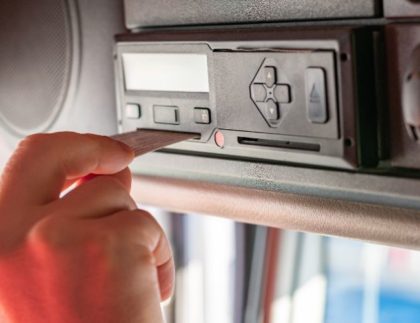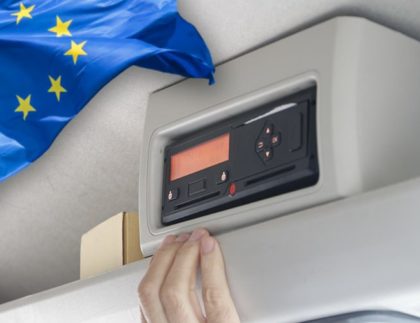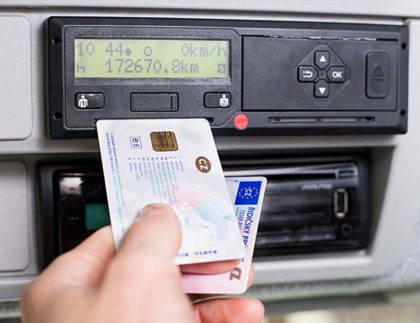

The United Kingdom consistently remains one of the most important economic centers in Europe. In recent years, we have observed changes in regulations concerning access to the transport market, which have a significant impact on the entrepreneurs in the TFL industry. For those involved in transport services, it is of key importance to understand the changes introduced and the related, potential effects on their activities.
Brexit has caused a lot of chaos and difficulties in the industry. From the moment when the United Kingdom left the European Union, a new regulatory framework has been introduced, forcing European carriers to pay particular attention to international transport regulations.
In this article, we will take a look at the current legislation, spurring the above-mentioned changes in access to the transport market in the United Kingdom. We will discuss the requirements for entrepreneurs and the consequences of new regulations. We will also learn which international transport laws apply in this context. Moreover, we will present some practical tips on how to meet the new requirements and operate effectively in the changing market environment. We will analyze the impact of Brexit and explain what kind of challenges it brings about for the TFL industry. Read ahead!
New requirements for transport entrepreneurs
In 2023, the provisions of “The Drivers’ Hours, Tachographs, International Road Haulage and Licensing of Operators (Amendment) Regulations 2022” (1260/2022) adopted by the Secretary of State for Transport of the United Kingdom on 26 November 2022 became effective in the United Kingdom. These guidelines pose a new challenge for the transport industry and are intended to consolidate the already existing rules concerning international transport conducted by companies registered in the European Union, which arise from the trade agreement between the EU and the UK.
What are the main changes?
- Removal of the rights of EU carriers to undertake cabotage following an unladen journey into the UK
- Removal of the rights of EU carriers to undertake combined transport (these are, for example, certain kinds of intermodal transport)
- Requirement for EU carriers to hold ECMT permits in order to legitimately perform transportation between the United Kingdom and third countries
It should also be noted that, as of 2 February 2022, the requirement on driver posting and registration in the IMI system is applicable – also in the territory of the United Kingdom. These changes also apply to minibus transport with vehicles with a permissible total weight up to 3.5 tons, the owners of which must hold a mandatory license.
Consequences of changes for European carriers
Unfortunately, changes introduced by the UK are undoubtedly unfavorable for European carriers. In particular, they will affect companies that undertake cabotage and transport to/from third countries. What are the current requirements for transport entrepreneurs? The law allowing to undertake cabotage twice within a period of 7 calendar days, but only following completion of an international transport, i.e. importation of cargo into the United Kingdom, remains in force. However, the possibility to perform this type of internal transport following unladen entry by land/sea from Ireland (which is a common transportation direction for our carriers) has been significantly limited.
What about transport between non-EU countries and the United Kingdom? In this situation, it is necessary to hold an ECMT (European Conference of Ministers of Transport) permit.
What documents are needed to gain access to the UK market?
Unchangingly, the most important document is a current Community license or, in practice, a valid extract from the license, which must be held in the vehicle. A CMR document, i.e. an international consignment note, is necessary when performing cabotage transport. What information must it contain?
- Issue place and date
- Sender’s and carrier’s names and addresses
- Date and place of accepting the goods for transport, place of release
- Recipient’s name and address
- Information on the goods, number of items, weight
- Transport costs (e.g. customs duties)
- Representation that the transport is subject to CMR regulations
What documents are needed to gain access to the UK market for regular or special regular bus transport services? In addition to an extract from the license, the driver should have authorization for providing transport services (along with the extract). A passenger waybill will be necessary when performing occasional transport services.
It should also be reminded that, in order to be admitted to transport goods in the territory of the United Kingdom, the carrier must hold the appropriate customs documents and be registered in the GVMS (Goods Vehicle Movement Service) system – this obligation has been in force since 1 January 2022 and the system has been introduced in connection with Brexit. You should also remember about a GMR number, i.e. Goods Movement Reference. This is the goods transport reference number, which is necessary for transport between the European Union and the United Kingdom.
What steps should be taken to meet the requirements?
It is a fact that the challenges for the transport industry connected with Brexit and changes in access to the transport market in the United Kingdom are a real problem for European enterprises. Truck fleet management should be reorganized in consideration of the limits imposed by the UK. Such activities require not only appropriate organization of the vehicles, but most importantly adjustment of the drivers’ work schedule.
The need to adjust the receipt strategy for intermodal semitrailers at UK ports cannot be omitted. You should thoroughly consider how to appropriately plan resources and ensure the effectiveness of your activities. It is also important to include changes to the unloading operations planning in Ireland. Following arrival from the “Emerald Isle”, it will be impossible to perform cabotage in the territory of the United Kingdom.
International transport with non-EU countries, such as Switzerland or Turkey, should also be taken into consideration. Appropriate ECMT permits are needed in order to perform this type of transportation services. It is important to remember about the necessity to pay for and obtain such permits in advance in order to avoid unnecessary delays and complications.
Brexit and changes in access to the United Kingdom transport market
Guidelines included in the Trade and Cooperation Agreement between European Union and the United Kingdom specify the framework for EU carriers to access the UK transport market in accordance with the regulations EC 1071/2009, EC 1072/2009 and EC 1073/2009.
The previously mentioned Community license still remains a key document – regardless of whether trucks or buses are concerned. Since 20 May 2022, owners of vehicles with a permissible total weight of up to 3.5 tons must hold this document in order to be able to complete international orders.
What are the most important changes in access to the United Kingdom transport market?
- Limit of two cabotage transports during a period of seven calendar days
- Removal of the rights to undertake cabotage following an unladen journey
- Removal of the rights to undertake combined transport
- Requirement for EU carriers to hold ECMT permits for transport between the United Kingdom and third countries
Customs and formal matters cannot be omitted in the context of the requirements for the transport entrepreneurs – registration in the GVMS system and obtaining a GMR number are necessary.
New challenges for the transport industry in the United Kingdom
The functioning and organization of transport to and from the United Kingdom involves many formal difficulties in relation to both the registration of the carrier and cargo in the UK systems, as well as the customs and administrative procedures related to crossing the border of the EU. These obstacles directly impact the possibility to meet the delivery deadlines for a specific cargo. The effects are particularly severe for smaller domestic transportation companies, which, in a perspective of several years, may be completely excluded from the UK market due to the financial and organizational limitations.
Eliminating the possibility to collect semitrailers on previously applicable terms as part of intermodal transport, as well as the restrictions in respect of cabotage following unladen entry, may soon affect the actual bottom lines of individual companies. Almost immediately, we will see that not all of them will be able to accept a certain decrease in profits over a short time, as this period may be of key importance for the profitability of the enterprise.
Summary
It is beyond doubt that we are in for a time of dynamic changes in the area of international transport. The main challenges include Brexit, as well as the successively implemented provisions of the Mobility Package and matters related to the economic and political situation in Europe. Meeting the new requirements is possible, whereby it is crucial to develop their precise understanding and engage in consistent adjustment of activities.









